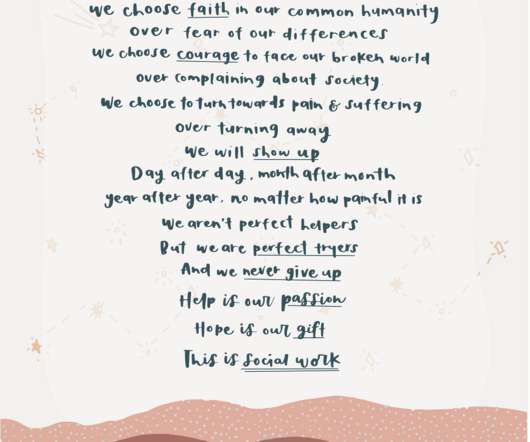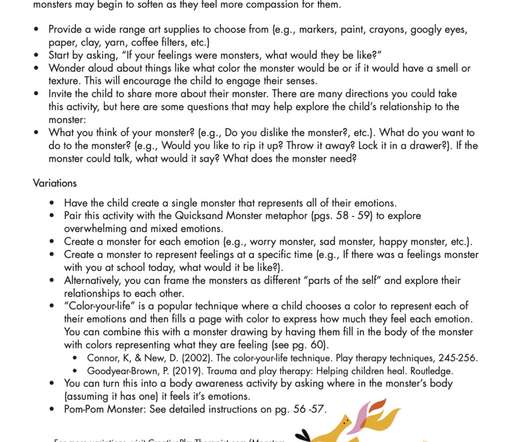23 interventions to supercharge your social work
Save the Social Worker
JANUARY 30, 2021
Please note that all client stories have had identifying details changed. As a social worker who was just starting out, I longed for a long list of social work interventions which I could look through whenever I had a client problem I couldn’t solve. Like a list of hacks to help people. Okay okay, maybe no intervention is that easy, but you get the idea.
















Let's personalize your content